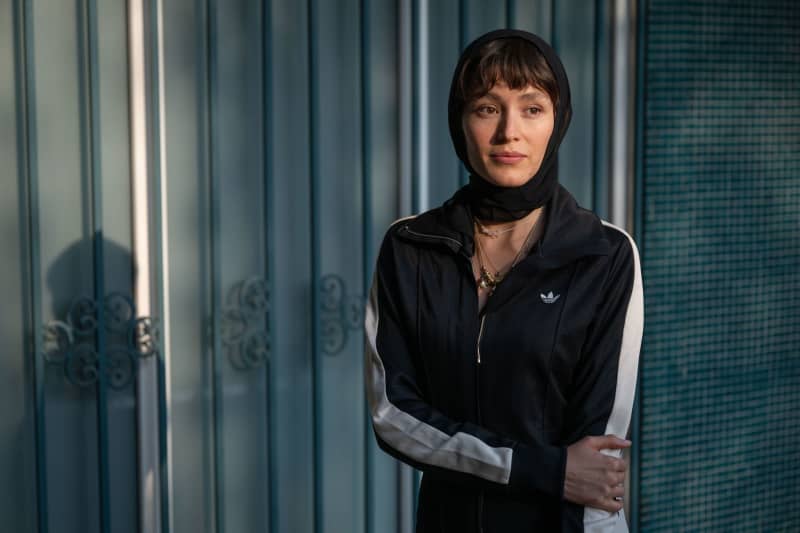In an urgent and contemplative tone, actress Fereshte Hosseini reflects on her experiences as a child of Afghan immigrants in Iran, where she has carved a prominent space in the film industry. Her journey has been fraught with challenges and societal prejudices, particularly concerning the expectations placed on women. At 27, while married to renowned Iranian actor Navid Mohammadzadeh, Hosseini credits her husband’s unwavering support as a pivotal driver behind her determination to push through the obstacles that accompany her profession. In a café in Tehran, she meets with an air of calmness, adeptly recounting her life in perfect English and revealing the hard work that underpins her success.
Becoming a successful actress in Iran is accompanied by a myriad of complications, as Hosseini details the constraints imposed by the country’s strict dress codes for women, which dictate how she must present herself in international film settings. The internal conflict between her artistic expression and mandatory compliance with societal norms showcases the complexities of navigating her craft in an environment that continuously challenges female agency. In light of recent protests advocating for women’s rights, ignited by the tragic death of Jina Mahsa Amini, many of Hosseini’s peers have faced severe restrictions or even exiled themselves from the country. As she reflects on the daunting choice of remaining in Iran, she resolutely claims the nation as her home, despite the possibilities of leaving behind the oppressive confines of societal expectations.
Hosseini’s family story echoes the shared historical and cultural threads between Afghanistan and Iran. Her family escaped the turmoils of conflict three decades ago, settling in Tehran, where they faced financial hardships as well as discrimination based on their ethnic identity. She recounts the painful experiences of being treated poorly due to her family’s background and acknowledges a transformative journey toward self-acceptance and respect in the face of stigma. Initially opposing her aspirations to become an actress for fear of shame, her family gradually recognized her commitment to her craft and ultimately embraced her ambitions.
The recent refugee crisis, stemming from the Taliban’s reassertion of power in Afghanistan, has resulted in an additional influx of Afghan migrants into Iran, intensifying already prevalent negative stereotypes. As both a rising star and an Afghan, Hosseini is uncomfortably familiar with the prejudices that have emerged amongst the Iranian populace. However, she has developed resilience against the online hatred she encounters, a process that speaks to a larger theme of psychological self-defense against harsh societal perceptions. Hosseini’s acknowledgement of the emotional toll of such hostility also underlines the importance of support systems; her husband’s encouragement remains vital in her quest to succeed.
Marrying Mohammadzadeh not only afforded Hosseini Iranian citizenship but also positioned her to explore broader horizons in her career. Her ambitions extend beyond merely acting; she views her platform as an opportunity to enact change and disrupt negative narratives surrounding Afghan identity. Her participation in the Serbian drama “Dwelling Among the Gods” marked a significant step toward realizing her aspirations on an international stage, prompting her to envision narratives that foster understanding between cultures. Hosseini’s vision emphasizes that storytelling should not be confined to tragedies but should encompass the multifaceted and positive experiences of marginalized groups.
In her role as an emerging voice in Iranian cinema, Hosseini articulates a desire to dismantle prejudices against Afghan migrants and foster empathy within the Iranian public. She contends that cinema can bridge divides by humanizing differences, urging filmmakers to portray more relatable and heartwarming stories reflective of communities often regarded as “the other.” Her call for openness and communication resonates throughout her narrative, advocating for a future where understanding prevails over prejudice through the power of storytelling. Through her work, Hosseini aspires to change the lens through which Afghan experiences are viewed in Iran and beyond, cultivating a society that sees not only the struggles but also the shared humanity of its diverse inhabitants.

